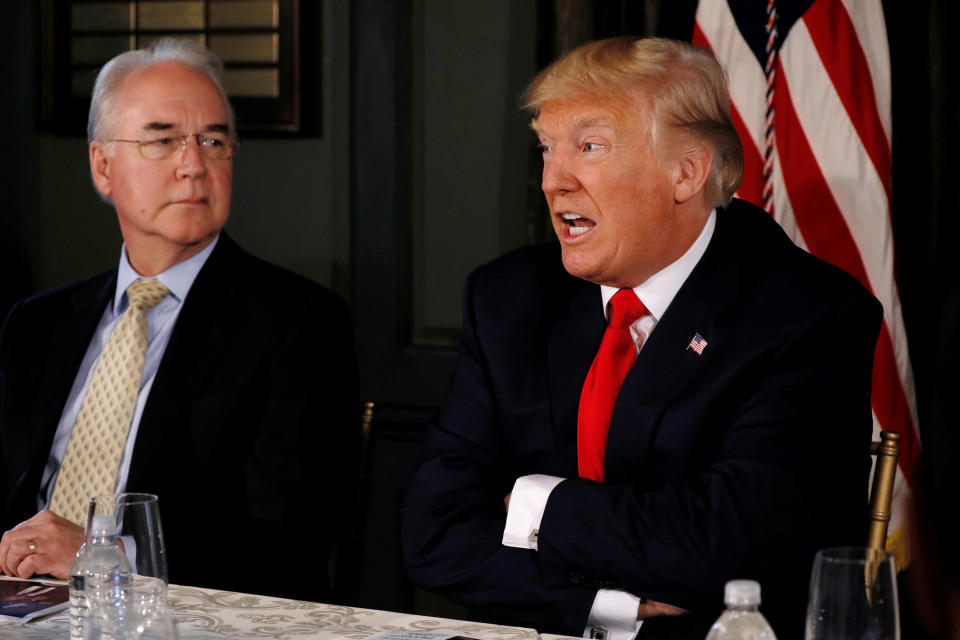Premiums will rise 20% if Trump stops Obamacare payments, says CBO

If President Donald Trump stops cost-sharing reduction payments to insurers participating in the Affordable Care Act’s exchanges, premiums for individual plans would go up 20% on average, according to new analysis released on Tuesday by the Congressional Budget Office (CBO) and the Joint Committee on Taxation.
Trump has repeatedly said the Affordable Care Act, known as Obamacare, is “failing” and that “he’s not going to own it.” But despite making these statements from the highest office, they are not accurate by multiple analyses from health think tanks like Kaiser Family Foundation to Standard and Poor’s.
Trump himself has great power over whether the ACA survives, and one of the ways to help “Obamacare victims,” a term Trump and Vice President Mike Pence have used, is to guarantee these cost-sharing reduction payments to insurers, instead of threatening to stop them.
The Office’s findings underscore that Trump has control of the costs of these health insurance premiums. Many insurers that exited the marketplaces said they did so because of uncertainty over whether they would receive the cost-sharing payments.
“The most important thing that the president and the Republican senators can do is to ensure the funding for the cost-sharing reductions continues,” Dr. Mario Molina, former CEO of Molina Healthcare, told Yahoo Finance in July. “[Trump] has funded those on a month-to-month basis with no assurance they will continue. This is causing a lot of destabilization in the marketplace.”
For the insurers that have elected to stay on the exchanges to offer plans, many premiums were set in a similar ballpark to the CBO’s 20% as the insurers sought to hedge should the payments stop.
“If he withdraws the funding, [Trump] will immediately cause collapse and there will be no one to blame but him,” said Molina. “Many insurers will raise premiums, and many will withdraw.”
Should the payments cease in 2018 — they are guaranteed until December — the CBO and JCT estimate that 5% of people would live in areas without insurers. By 2020, however, further stabilization will have occurred and “people in almost all areas would be able to buy nongroup insurance.”
The premium hikes would severely pinch people already fed up with rising ACA premiums, but around 85% of ACA recipients get a premium tax credit and would not see significant increases since the credits are tied to the premiums’ cost, not a fixed dollar amount.
That actually means that the federal government would end up shouldering the expense of higher insurance premiums for many consumers, since it would have to pay additional tax credits. Should Trump stop the payments, the CBO writes, the deficit would increase by $6 billion in 2018, $21 billion by 2021 and $26 billion by 2024.
Ethan Wolff-Mann is a writer at Yahoo Finance focusing on consumer issues, tech, and personal finance. Follow him on Twitter @ewolffmann. Got a tip? Send it to emann@oath.com.
Read More:
Trump can’t ‘let’ Obamacare fail — but he can help it fail
Sometimes fake holidays like ‘National Ice Cream Day’ actually work
A robot lawyer can fight your parking tickets and much more
Consumer watchdog is making it easier for consumers to sue banks
How ringless spam voicemails became a partisan issue
How TripAdvisor hunted a robocaller that made 100 million calls to random people
Uber’s series of scandals has yet to put a dent in ridership
Social Security on track for ‘large, abrupt’ cuts in 17 years unless Congress acts
